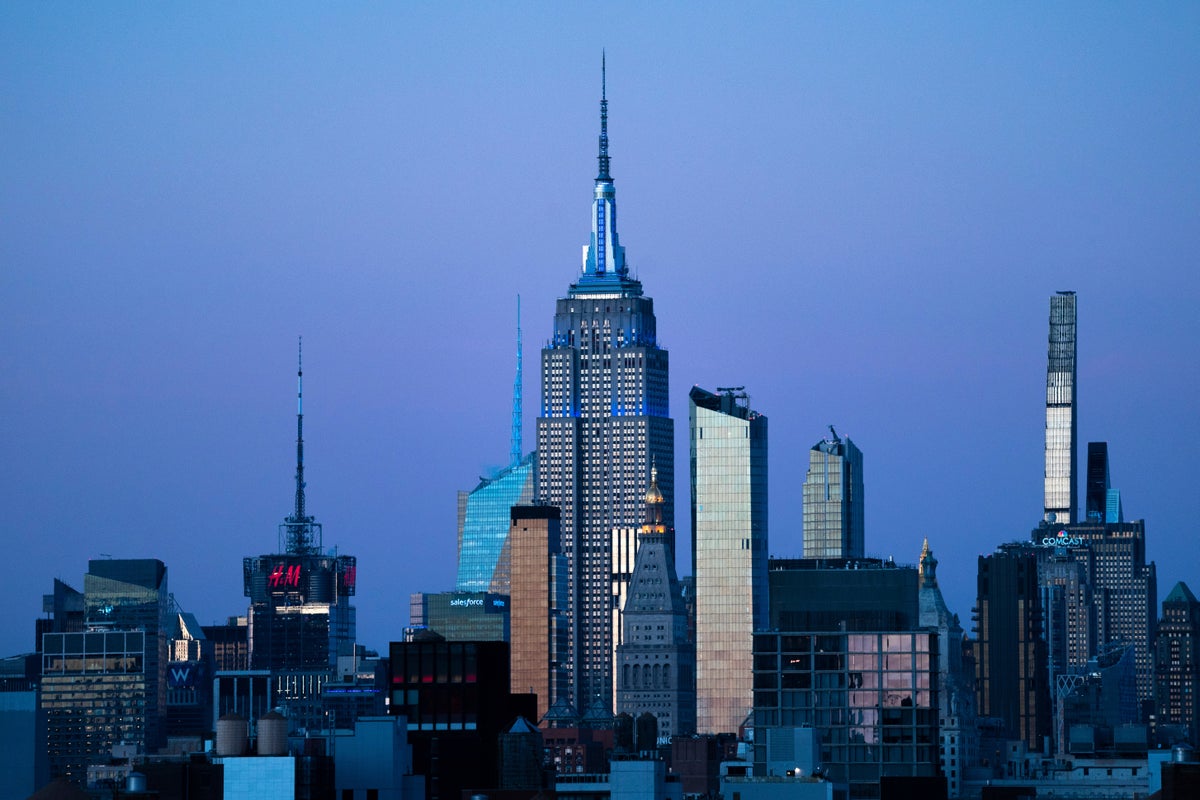
The historic Roosevelt Hotel in midtown Manhattan shuttered three years ago, but it will soon be bustling again — reopening to accommodate an anticipated influx of asylum seekers just as other New York City hotels are being converted to emergency shelters.
Mayor Eric Adams announced Saturday that the city will use the Roosevelt to eventually provide as many as 1,000 rooms for migrants who are expected to arrive in coming weeks because of the expiration of pandemic-era rules, known collectively as Title 42, that had allowed federal officials to turn away asylum seekers from the U.S. border with Mexico.
Across the city, hotels like the Roosevelt that served tourists just a few years ago are being transformed into emergency shelters, many of them in prime locations within walking distance from Times Square, the World Trade Center memorial site and the Empire State Building. A legal mandate requires the city to provide shelter to anyone who needs it.
Even so, Adams says the city is running out of room for migrants and has sought financial help from the state and federal governments.
“New York City has now cared for more than 65,000 asylum seekers — already opening up over 140 emergency shelters and eight large-scale humanitarian relief centers in addition to this one to manage this national crisis,” the mayor said in a statement announcing the Roosevelt decision.
The storied hotel near Grand Central Terminal served as election headquarters for New York Gov. Thomas Dewey, who in 1948 was said to have wrongly announced from the Roosevelt that he had defeated Harry Truman for president.
As the city faces growing pressure to expand its shelter system, it is turning to vacant hotels for those who need a roof and a place to bunk down as they sort out their lives. One of them is the Holiday Inn, located in Manhattan’s Financial District. A few months ago, signs in the lobby windows of the 50-story, 500-room hotel said it was closed.
Scott Markowitz of Tarter Krinsky & Drogin, attorneys for the hotel’s owner, said reopening as a city-sponsored shelter made financial sense.
“They rent out every room at the hotel at a certain price every night,” Markowitz said, adding that it is bringing “substantially more revenue” than normal operations would have brought in.
It’s not new for the city to turn to hotels for New Yorkers without homes when shelters and other options weren’t available.
During the pandemic, group shelters made it difficult to comply with social distancing rules, prompting the city to rent out hundreds of hotel rooms as quasi COVID wards. As the pandemic eased, the city became less reliant on hotels.
That changed as thousands of migrants began arriving by bus last year.
The Watson Hotel on West 57th Street, which used to receive rave reviews for its rooftop pool and proximity to Central Park, is now being used to house migrant families.
“It is our moral and legal obligation to provide shelter to anyone who needs it,” the city’s Department of Social Services said in a statement. “As such, we have utilized, and will continue to utilize, every tool at our disposal to meet the needs of every family and individual who comes to us seeking shelter.”
Before the surge in asylum seekers, the city was dealing with increased homelessness, packed shelters and a dearth of affordable housing. New York even announced a plan to send hundreds of migrants to hotels in suburban Orange and Rockland counties across across the Hudson River, angering local leaders.
Vijay Dandapani, the president and CEO of the Hotel Association of New York City, said the city needs to come up with long-term solutions.
“Hotels are not the solution for these situations,” he said, adding that the optics posed problems for taxpayers who might think migrants are living in luxury at their expense.
But some advocates for the homeless say the private quarters that hotel rooms provide are a better choice than the barracks-style accommodations the city usually provides.
Kassi Keith, 55, one of the city’s homeless residents, welcomed the hotel arrangement.
“Having your own room, what it gives you, it gives you peace of mind,” Keith said. “I can go to sleep with both eyes closed, you don’t have to keep one eye open.”
Earlier this year, dozens of migrants staged a protest after being evicted from hotel rooms and forced into barracks set up at the Brooklyn Cruise Terminal, which has poor access to public transportation. They complained about the cold, the lack of privacy and not having enough bathrooms.
The Roosevelt Hotel will first open this week as a welcome center providing legal and medical information and resources, officials said. It also will open 175 rooms for families with children, then expand the number of rooms to 850. The city said another 150 other rooms will be available to other asylum seekers.
“When you offer people something like a hotel room, you’re much more likely to get a positive response to it," said David Giffen, executive director of the Coalition for the Homeless, adding that the rooms provide “privacy and dignity.”
But Giffen said hotels won't address the greater problem of a lack of affordable, permanent housing.
“What’s behind all of this (is) that we have such a failed housing system that people who have lower incomes end up using the shelter system as the de facto housing system,” he said. “And then the shelter system doesn’t have enough beds so we’re using the hotels as a de facto shelter system.”







